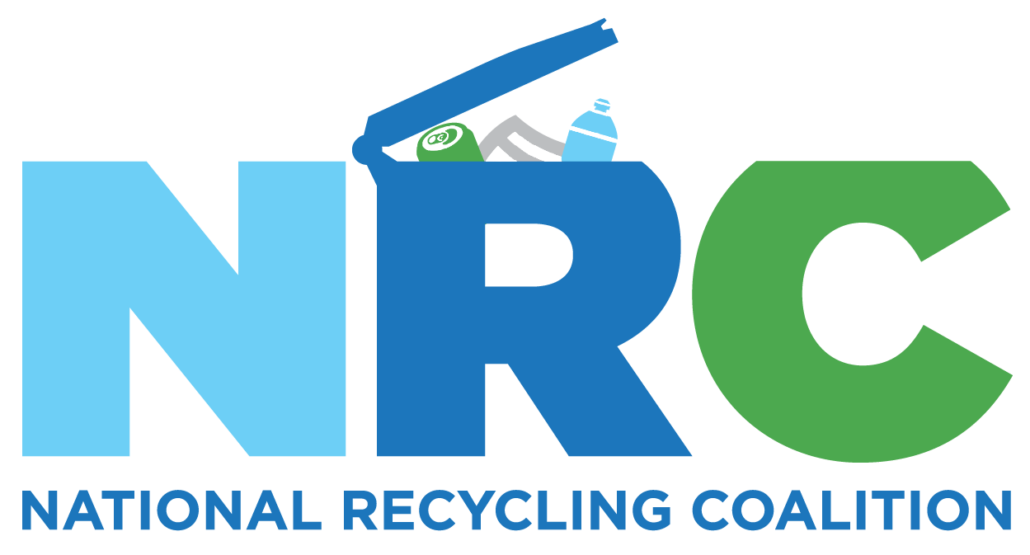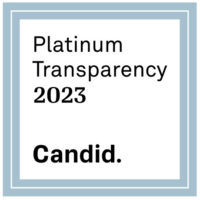ACCREDITATION / ACCREDITED PROGRAMS
National Recycling Coaltion
General
training and certification program descriptions
NSCB
Accreditation Criteria and Process
Application for Accrediting Training Programs
ACCREDITED PROGRAMS
New Jersey –
COURSE DESCRIPTIONS
Introduction to Sustainable Resource Management
West Valley College,CA, 2015. Judi Gregory-instructor
This course will look at upstream practices that reduce waste during the manufacturing and distribution of products, as well as downstream practices to collect, reuse, recycle and compost materials once they have been discarded. Additionally, the course will look at the impacts to the economy and job creation connected to SRM. This introductory Course on Sustainable Resource Management covers the 25 principles, or student learning outcomes (SLO’s), identified by the National Standards Certification Board of the NRC.
Resource Management and Zero Waste for Communities
Golden West College, CA, 2012. Gregory Warren-Instructor
This course will identify how resource management and zero waste policies and programs are developed within a community, what type of planning and facilities are needed, and how to finance the systems. Students will also review sample zero waste community plans and will discuss different approaches that communities have taken in developing zero waste plans. Students will also learn business recycling tools for local government, best practices for RFPs (Request for Proposals) and contracts, understanding enforcement options, design of resource recovery parks, performance reporting and financial records, Extended Producer Responsibility and Local Producer Responsibility policies and programs, bans, rules and incentives, and developing local markets and uses.
https://drive.google.com/drive/folders/0B_Gc0Vlr43CfVG5iZDBJSnlWZzA
Waste Management and Recycling
Union College, 2016. Professor Dr. Ashraf Ghaly, P.E.
Introduction to various sources of hazardous, non-hazardous, biodegradable, and non-biodegradable waste materials. Focus areas arelandfill systems, geosynthetics, geotextiles, geomembranes, geonets, single clay liner, single geomembrane liner, composite liner
systems, leak detection and leachate collection, removal and treatment of leachate, and capping and closure systems. The recycling segment will explore natural resources of raw materials including origin and use, and potential and limitation for recycling of materials. Focus on various applications of recycling recyclable and non-recyclable materials. Discussion of methods of manufacture and compositions of such materials will concentrate on advanced industrial applications for the reuse of non-recyclable waste
materials. Application areas include production of new materials, materials with superior qualities for special purposes, and materials with high level of resistance against certain environmental conditions. The course will also touch on the political aspect of recycling including consumer attitude and government incentives to encourage recycling. Three class hours and a weekly lab. Prerequisite ENS100 (Introduction to Environmental Studies) or GEO102 (Environmental Geology).
https://drive.google.com/drive/folders/0B_Gc0Vlr43CfVG5iZDBJSnlWZzA
Cultures of Waste and Recycling
Oklahoma State Univesity, 2010. Prof. Dorothy Noyes
This course explores the notion of the residual: what is left over, useless, unclassifiable. We will explore the customary management of communal resources, both human and material, in scarce-resource societies. We’ll consider processes of symbolic classification through which phenomena can be labelled as out of place or out of phase. We’ll examine the creation of waste (and its converse, deprivation) with the codification of custom in modernity, and look at strategies by which waste is recuperated as a matter of necessity, aesthetics, or ideology. We’ll look at how different kinds of leftover move in and out of systems of value: for example, the labelling of things as “junk” or “antiques,” people as “trash,” or ideas as “folklore.” Finally, we’ll think about the status of residues in social and cultural theory.
https://drive.google.com/drive/folders/0B_Gc0Vlr43CfVG5iZDBJSnlWZzA
Intro to Recycling Course
Northern California Recycling Association, 2005. Gary Liss, Instructor
NCRA offers this course to help train people who would like a quick overview of recycling by presenting an inexpensive three-day course at a convenient location.
https://drive.google.com/drive/folders/0B_Gc0Vlr43CfVG5iZDBJSnlWZzA
Sustainable Operations
Columbia Univ, 2015. Vance A. Merolla, Instructor
In this course, students will work to understand and communicate the importance of incorporating sustainability at each step along the value chain, including product design, procurement, distribution, manufacturing, product/service use and end-of-life disposition. By considering the organization holistically, students will perform analyses of the value chain , including life cycle and cost/benefit analyses, and incorporate effective sustainability strategies into the organizational culture and day-to-day operations. Students will conduct risk assessments and implement risk reduction measures in an with overall business goalsand stakeholder requirements. In addition to technical sustainability considerations such as climate change, energy, water and waste, students will be able to implement practical sustainability initiatives within operating organizations through innovative change management, culture change and other organizational strategies. Importantly, students will be challenged to think concretely about making choices and balancing elements of the triple bottom line in an overall business context.
http://sustainability.ei.columbia.edu/files/2015/08/SUMA-K4170-Sustainable-Operations-Syllabus-Fall-2015.pdf
Oregon State Program
Recycling 101 is an online, eight-part, self-paced course created in partnership with the Association of Oregon Recyclers. Modelled after Oregon’s Master Composter class. $65 fee to apply.
https://pace.oregonstate.edu/catalog/free-recycling-101-course
American University
Whole list of courses related to sustainability and zero waste, including possible study abroad opportunities,
http://www.american.edu/finance/sustainability/Waste.cfm
http://www.american.edu/loader.cfm?csModule=security/getfile&pageid=2868098
University of Maryland
Internship as well as student project opportunities
http://www.sustainability.umd.edu/content/campus/recycling.php
University of Central California
Course outline including possible field trips, major topics, and case studies
https://www.uclaextension.edu/InstructorContent/prod/FileRoot/Syllabus/218520.pdf
[/expand]
[expand title=”COURSE DEVELOPMENT” style=”regular”]
Understanding Environmental Literacy in America: And Making it a Reality
Kevin J. Coyle, J.D. – National Environmental Education & Training Foundation, 2004
22 page report on what Ten Years of NEETF/Roper research and related studies tell us about how to achieve environmental literacy in America.
[email protected]
[/expand]
[expand title=”FUNDRAISING” style=”regular”]
https://docs.google.com/document/d/1mZ4boB6WV0xKq2Rpc80lJEiU2PV0iR22rrue7N4ROsI/edit
The Chronicle of Philanthropy
The Chronicle of Philanthropy is an independent news organization that has been serving leaders, fundraisers, grant makers, and others involved in the philanthropic enterprise for more than 25 years. It offers a robust advice section to help nonprofit workers do their jobs as well as one of the biggest listings of career opportunities.
The Chronicle updates its website throughout the day and appears 12 times per year in print.
Subscribe
Get free daily or weekly email updates
https://philanthropy.com/
The Non-Profit Times
Stay informed, catch latest trends in the nonprofit space.
Free E- Newsletters
The Foundation Center
Established in 1956, Foundation Center is the leading source of information about philanthropy worldwide. Through data, analysis, and training, it connects people who want to change the world to the resources they need to succeed. Foundation Center maintains the most comprehensive database on U.S. and, increasingly, global grantmakers and their grants — a robust, accessible knowledge bank for the sector. It also operates research, education, and training programs designed to advance knowledge of philanthropy at every level.
http://foundationcenter.org/
GrantStation
GrantStation.com, Inc. (GrantStation) offers nonprofit organizations, educational institutions, and government agencies the opportunity to identify potential funding sources for their programs or projects as well as resources to mentor these organizations through the grantseeking process.
GrantStation provides access to a searchable database of private grantmakers that accept inquiries and proposals from a variety of organizations; federal deadlines; links to state funding agencies; and a growing database of international grantmakers. In addition, GrantStation publishes two newsletters highlighting upcoming funding opportunities, the weekly GrantStation Insider, which focuses on opportunities for U.S. nonprofit organizations, and the monthly GrantStation International Insider, which focuses on international funding opportunities.
https://www.grantstation.com/index.asp
Grants.gov
A system that provides a centralized location for grant seekers to find and apply for federal funding opportunities. Today, the Grants.gov system houses information on over 1,000 grant programs and vets grant applications for federal grant-making agencies.
http://www.grants.gov/web/grants/home.html
GrantWatch.com
Current subscribers include: nonprofits, 501c3 organizations, universities, hospitals, government agencies, schools, community based organizations, religious institutions, research institutions and some small businesses and individuals. GrantWatch does not give grants.
Claims to be the #1 website for International, Canada and USA federal, state, local, foundation, and corporation grants.
Pricing & Plans based upon the amount of time you want to use the website. $15 weekly, $40 monthly, $78 for every 3 months, $142 for every 6 months or $199 annually.
Higher Education Grants
Preservation Grants
Research & Evaluation Grants
EPA Environmental Education (EE) Grants
Under the Environmental Education Grants Program, EPA seeks grant proposals from eligible applicants to support environmental education projects that promote environmental awareness and stewardship and help provide people with the skills to take responsible actions to protect the environment. This grant program provides financial support for projects that design, demonstrate, and/or disseminate environmental education practices, methods, or techniques. Since 1992, EPA has distributed between $2 and $3.5 million in grant funding per year, supporting more than 3,600 grants.
https://www.epa.gov/education/environmental-education-ee-grants
[/expand]
[expand title=”INSTRUCTOR QUALIFICATIONS” style=”regular”]
Call for Course Instructors
University of Colorado Sustainability Practices Program (SPP), 2012
Application submittal requirements:
https://drive.google.com/drive/folders/0B_Gc0Vlr43CfVG5iZDBJSnlWZzA
[/expand]
[expand title=” QUIZZES AND EXAMS” style=”regular”]
Imagine Tomorrow
Ten question, multiple choice recycling quiz, with sources
https://drive.google.com/drive/folders/0B_Gc0Vlr43CfVG5iZDBJSnlWZzA
Habitat Heros
22 question multiple choice quiz with sources
www.HabitatHeroes.com
LEED v4 Green Associate FreePractice Exam
This LEED Green Associate v4Practice Exam was developed in conjunction with GreenStrep Education.com and online LEED Exam TrainingWorkshops. Includes green design, construction and operations across sustainability professions (not just recycling and waste management)
http://www.greenstepeducation.com/GreenStep%20Free%20LEED%20v4%20Practice%20Exam.pdf
[/expand]
[expand title=”OTHER TRAINING PROGRAMS” style=”regular”]
Summary of other training programs
Santa Monica College Recycling and Resource Management Program
Solid Waste Association of North America (SWANA)
US Composting Council’s Compost Operations Training Course
Zero Waste Business Associate (ZWBA) Certification
[/expand]

